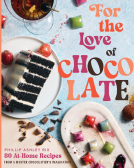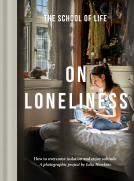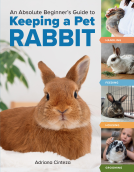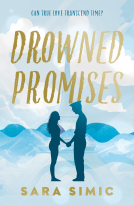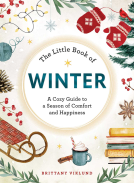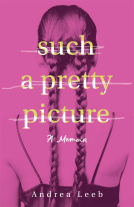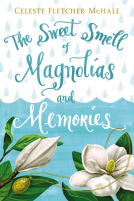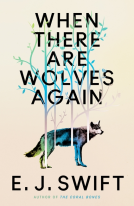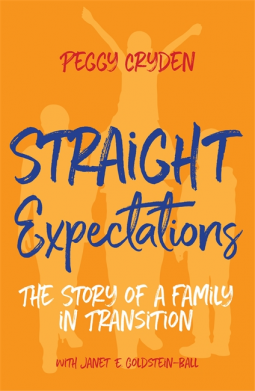
Straight Expectations
The Story of a Family in Transition
by Peggy Cryden
This title was previously available on NetGalley and is now archived.
Send NetGalley books directly to your Kindle or Kindle app
1
To read on a Kindle or Kindle app, please add kindle@netgalley.com as an approved email address to receive files in your Amazon account. Click here for step-by-step instructions.
2
Also find your Kindle email address within your Amazon account, and enter it here.
Pub Date May 18 2017 | Archive Date Jun 16 2017
Description
Ever since they were young, Peggy Cryden noticed her children's gender expression did not correspond with society's expectations of their biological gender. In this moving and honest memoir, Peggy details the experiences and challenges of raising both a gay son and a gay, transgender son and shares her family's journey of adversity and growth, which has helped inform her work as a psychotherapist.
Each chapter explores a particular year in the family's life, following the children from birth to adulthood and through their numerous experiences including coming out, depression, hate crime, relationships, school and various aspects to do with transitioning (legal, physical, medical, social) as well as their appearances in the media as a family. This book is insightful, charming and thought-provoking, and through levity and humour, offers a positive approach to parenting outside of convention.
Available Editions
| EDITION | Paperback |
| ISBN | 9781785927485 |
| PRICE | $17.95 (USD) |
Featured Reviews
This book is a must read for anyone unsure or challenging their sexuality and/or their gender too. Also their family may find it useful as a guide to accepting the changes ahead.
After a detailed look into years of Peggy's own life, alike us all she grew up through a lot of turbulent events within family members, abusive partners, breaking up of relationships, teenage curiosity and growth.
Growing up is hard enough, but for Julia, she knew there was a bigger issues. Self doubt buried away for years until finally beginning the transition which is a big step, taking hormones, altering your look, continuing education and also therapy sessions.
The book reveals a full look into issues facing family, friends and obviously the individual making the transition. There is also a look into campaigning for LGBTQ rights which proves how much the issue raised truly still needs tackling as no one should face discrimination or abuse towards them.
 liana p, Reviewer
liana p, Reviewer
Ever since they were young, Peggy Cryden noticed her children’s gender expression did not correspond with society’s expectations of their biological gender. In this moving and honest memoir, Peggy details the experiences and challenges of raising both a gay son and a gay, transgender son and shares her family’s journey of adversity and growth, which has helped inform her work as a psychotherapist.
Each chapter explores a particular year in the family’s life, following the children from birth to adulthood and through their numerous experiences including coming out, depression, hate crime, relationships, school and various aspects to do with transitioning (legal, physical, medical, social) as well as their appearances in the media as a family. This book is insightful, charming and thought-provoking, and through levity and humour, offers a positive approach to parenting outside of convention.
When I came across this book in Netgalley, I knew I just had to have it. Unfortunately, it’s not very often that we see loving, supportive families when it comes to lgbt+ youth stories. Especially for trans kids, more often than not, the reality can be a pretty scary and horrifying scenario. Reading a memoir of a mother who not only accepted, but also supported her children while they came to terms with their sexuality and gender identity is a heart-warming story, one that needs to be heard.
Telling her story from the very beginning, Peggy Cryden begins by narrating her own childhood growing up in a neglectful and harmful environment, to her teenage years, to meeting her husband and her own struggles as a mother later on. Reading about her, her story, her struggles and her life was an emotional roller-coaster. Her honesty and unsugar-coated version of reality made this book so special I can see myself going back to it again and again and again.
Reading about such a supportive mother, such a wonderful, great woman, really gave me hope. Hope that kids like me (lgbt+ kids), kids struggling with their sexuality and gender identity, kids that don’t exactly fit in society’s expectations, can find solace to the people closest to them, that they can overcome their obstacles and get their happily ever after. Straight Expectations is a book I really needed to read, and a book that needs to be read and praised for its very honest depiction of life and for spreading a hopeful message for trans youth and for spreading awareness, for very simply, honestly, and authentically depicting a matter many cisgender people are unfamiliar with. Its language is a very simple one and that’s exactly why this book is so amazing; because it delivers very powerful, positive and inclusive messages without being strictly educational or didactic. Definitely one of my favourite reads of 2017 so far.
Expected publication: May 18th 2017
**An ARCopy was provided via Netgalley in exchange of an honest review **
 Lisa H, Librarian
Lisa H, Librarian
This is a good book for people looking for accounts of gender transition from the people directly impacted by it. Unfortunately, I don't think there's anything about this particular title that makes it stand out among the other similar stories that have been published.
 Nigel R, Reviewer
Nigel R, Reviewer
This is a potentially complex story of family issues and changes within the family group. Peggy is the mother; her children at the start of this book are Julia, who has issues with her gender, and Jay her son who has issues with eating and OCD.
After the general introduction to the family Peggy talks about her background as a child and then an adult. While it touches on Peggy's family generally we do find out that her mother was certainly somewhat dysfunctional at best. Once she leaves home it is apparent that Peggy herself has a tendency towards a chaotic and complicated lifestyle.
Moving on she covers the birth of her two children and their early years when she sees some signs of potential difficulties with both children although there is nothing very specific at that time.
The story then starts to focus on Julia more and it is clear that Peggy is a genuinely nice/concerned mother. Peggy seems to take the view that they do not particularly want to air their issues on TV however a slot on the Oprah show would be acceptable and that call comes. I found the fact the TV appearance did lead to some consequences and that it exposed some of the differing attitudes to Julia's problem very interesting. Julia certainly has problems to deal with in her transition process to Jake.
The book moves on to Jay and his issues. This actually leads to another appearance on Oprah as a family. A foundation to help people with gender issues and transitions is set up and administered by the family and in particular the now adult siblings. Peggy herself is by now a counsellor with her own private practice and she reviews the overall situation in the USA as it relates to her children's issues.
I found the book both readable and interesting in general. It is worth noting than the "Further Reading" section has useful information in. However more particularly the potentially very useful "Resources" section offers solely USA based ones.
In a sense I guess I was expecting a rather straightforward story of the changes that took place in Peggy's children. In practice quite a lot of the book is given over to Peggy and her life rather than being fully focussed on the two children. If I had any criticism of the book it would be about that. However if the children had been the primary focus then they would have had to have their own input which doesn't seem to be the case. I think it would be of interest to those with an interest but I'm not sure that there is really enough about Julia in this which makes it more of a "general" family story rather than a gender transition book in the main. Ultimately I found this an interesting read.
 Emma P, Reviewer
Emma P, Reviewer
This book was fascinating. The author begins with her own childhood. She was adopted as a baby and grew up with a distant father and a mother with mental health issues. Her childhood was difficult and unconventional. Later in the book, we see how this affected her, and how in spite of her early role models, she grew up to become a caring and strong mother to her children.
Her children went through their own tough times, with gender dysphoria, bullying, an eating disorder and struggles with depression. They are lucky to have such a wonderful and strong mother, who supported them through all this. Her account of her eldest child's transition from girl to boy and how they coped with it as a family, and her youngest son's struggle with an eating disorder and his sexuality, was fascinating.
I hope that this book will bring hope to families going through similar issues, and better understanding to others as to what it is like for these families.
 Reviewer 303307
Reviewer 303307
Review can be found at knightlyreads on Tumblr. One thing I forgot to add: I noticed some repetitive wording, especially in the beginning chapters. For example, on pg 41: "I thought I looked more like a boy than a girl. ... My skin was milky white, which some people told me was beautiful, but I thought I looked like a ghost. I had green eyes, which I received compliments for..." On pg 42: "....I was an awkward child who looked more like a boy than a girl. I had ivory-white skin, which most people told me was beautiful... I had green eyes which I was told were beautiful, but I didn't believe it."
 Monita M, Reviewer
Monita M, Reviewer
Picked this up from Netgalley and it's pretty much what you'd expect. The author is the mother of two LGBTQIA+ children, and works as a psychotherapist as well, which gives the book an analytical, rather than preachy style. It's good to see people talk about their 'unconventional' family dynamics, especially regarding the flexible spectrum of gender and sexuality. It's the 21st Century, we need to be more open and aware about each individual's differences.
While the book is supposed to be about her transitioning family, the first half of the book is about the author's life. It's a fascinating life in itself, worthy of a carefully edited memoir if she wanted to go down that road, but didn't quite fit with the premise of the title. It's important to note that she was adopted and about the external maternal influences that shaped. These parts of her story certainly aren't 'straight' and most likely defined her later open and accepting outlook. But, it detracted from the (more) important story the book blurb drew us in with; that of her sons. We do not get their voices in the book, the perspective is purely from the mother's point of view. We could have done with more insight into the transition, the internal workings of a person - a young person at that - who goes through this challenging experience. Gender being on a spectrum is hard for a lot of people to understand, but it's not something that's clearly laid out enough for people to get a grasp of. Given the author's psychological knowledge, I was hoping for a lot more detail about the psychology of not only being transgender, but also that of their family. The author is candid about many of the struggles of the family, including the negatives; that must have been difficult to put down on paper. We get the story of the family, none of the science behind it.
The general writing feels rushed as it is slotted into neat episodic chapters. It makes for an incredibly easy read, but one that feels like it's only part of the picture. It has a happy, positive ending, which is needed for anyone on the spectrum looking for a little sense of hope. For young people, especially those struggling or coming to terms with the identities, this will be a quick, uplifting read.
 Tracy M, Reviewer
Tracy M, Reviewer
This is a poignant, educational and informative memoir of a mother dealing with the transition of her FTM transgender child, and the effects it has on the family. Peggy, who was adopted and raised by a mentally ill mother and a father who was emotionally unavailable, starts her story in her early childhood and takes us through her childhood and into becoming a wife and later a mother herself. Peggy works hard to make sure she is the wife and mother her mother never was.
She later takes us through the struggles faced by her daughter Julia, as she comes to terms with feeling like she's truly a boy on the inside. We are shown what not only Jake (Julia) faces as he becomes a young man and leaves Julia behind, but the effects it has on Peggy, her husband and Jake's younger brother, Jay. It's not an easy transition and they hit plenty of bumps in the road, but we see how these bumps can be made bearable with the support of understanding family and friends.
This memoir was well-written and interesting. It's educational without being filled with statistics and definitely recommendable to anyone trying to come to terms with or just understand more about a transgender family member or friend or just what it means to be transgender period.
*copy provided by author/publisher via NetGalley in exchange for an honest review*
 Reviewer 333855
Reviewer 333855
It was both fascinating and heartbreaking to read about the family's struggle to understand and support their sons.
 Evelina A, Reviewer
Evelina A, Reviewer
This book has both good sides as well as bad sides (as any other - tell me something new, right?) But I would say it leans more towards the good. Especially if you're someone in a transitioning family, it's a good book to read to lift your spirits, but I doubt its worth as a resource alone. It's because the bigger part of the book is dedicated to the personal backstory of the author and it doesn't actually even talk about the kids all that much. Up to 35%, you'll only be hearing about the mother growing up in a dysfunctional family. Another third of the book is dedicated to the kids being little. One son's gender change and the other son's sexual orientation and dealing with the transition as a family if maybe one chapter, maybe two? I mean... I expected to learn about the things teens go through when this happens, to learn more about them - but I have to say I learned only about how good a person the mother is and how she felt about everything. I do agree that she handled it all so well, but seriously, how many times can you congratulate yourself? That would be all fine and well, because the memoir IS well written, but... I don't think it should be named or blurbed the way it is. It's misleading. This isn't about a transitioning family. This is about a mother's life, in which some LGBT teens happened to be and how she dealt with the feelings that come from that.
I thank the publisher for the review copy in exchange to my honest review.
Readers who liked this book also liked:
Adriana Cinteza
Home & Garden, Nonfiction (Adult), Professional & Technical


